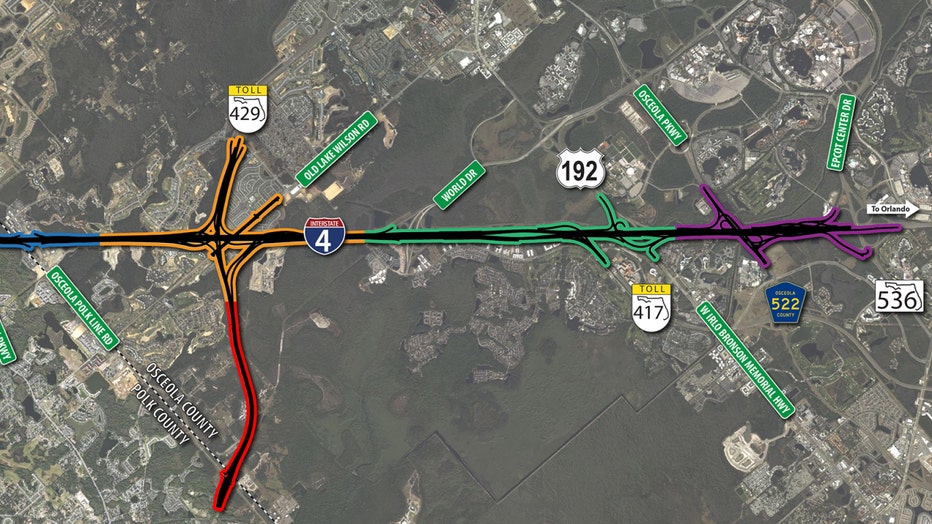FDOT prioritizes widening congested section of I-4 between Disney, U.S. 27

FDOT prioritizes widening section of I-4
Florida Gov. Ron DeSantis, joined by Secretary Jared W. Perdue, P.E., of the Florida Department of Transportation (FDOT), announced accelerated construction schedules for several key infrastructure projects under the "Moving Florida Forward" initiative.
ORLANDO, Fla. - Florida Gov. Ron DeSantis, joined by Secretary Jared W. Perdue, P.E., of the Florida Department of Transportation (FDOT), announced accelerated construction schedules for several key infrastructure projects under the "Moving Florida Forward" initiative.
These projects include the widening of Interstate 4 in Osceola and Polk counties and the Poinciana Parkway Connector Project in Osceola County, with construction beginning years ahead of schedule.
"Thanks to this approach, Florida's major transportation upgrades are fully funded and are ahead of schedule by decades," Gov. DeSantis said during a Wednesday news conference in Miami.

The I-4 projects aim to alleviate congestion for approximately 200,000 daily travelers in Central Florida. They encompass the widening of 14.7 miles of I-4 from six to ten lanes, including managed express lanes. Additionally, the projects will enhance road shoulders for emergency evacuations and optimize interchanges to reduce traffic backups. Construction on these projects will commence in phases starting this autumn.
MORE HEADLINES:
- Experts disagree on lightning deflection measures as Florida cities invest in new technology
- Man gets life in prison for attacking Orlando police officers on Facebook Live
- Could legalizing recreational pot bring more crime to Florida?
In addition to the I-4 projects, the Poinciana Parkway Connector project will address a critical 2.6-mile roadway in Osceola County, linking I-4, State Road 429/Western Beltway, and the existing State Road 538/Poinciana Parkway. Previously unfunded and projected to start no earlier than 2034, the project's delivery schedule has been expedited, with 65% of the work incorporated into the I-4 projects beginning later this year and the remaining work scheduled for 2028.

The legislative backing for these infrastructure initiatives was solidified through House Bill 1301, which grants FDOT the necessary authority to execute the Moving Florida Forward Infrastructure Initiative.

House Bill 1301 imposes public meeting and voting requirements on local and regional planning and transit agencies intending to reduce travel lanes or influence travel behavior. It also enhances accountability measures for public transit agencies and prohibits using state funds for politically charged messaging on transit vehicles.
Additionally, the bill expands funding eligibility for local and rural transportation projects, including those in Florida's heartland, and allocates $15 million annually to inland ports.

